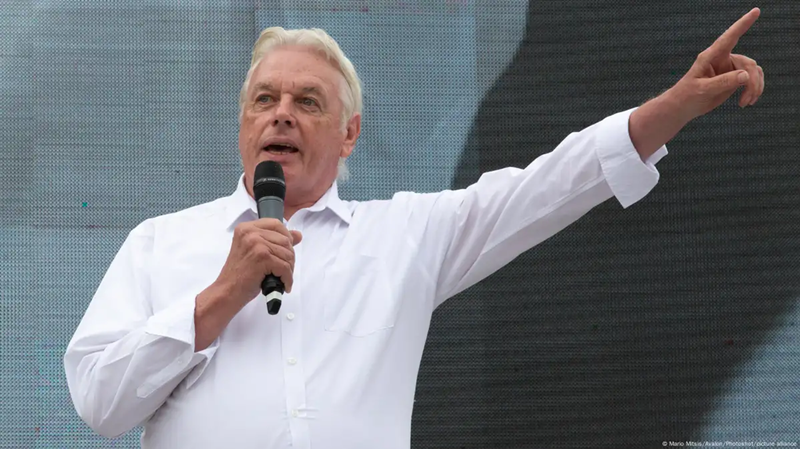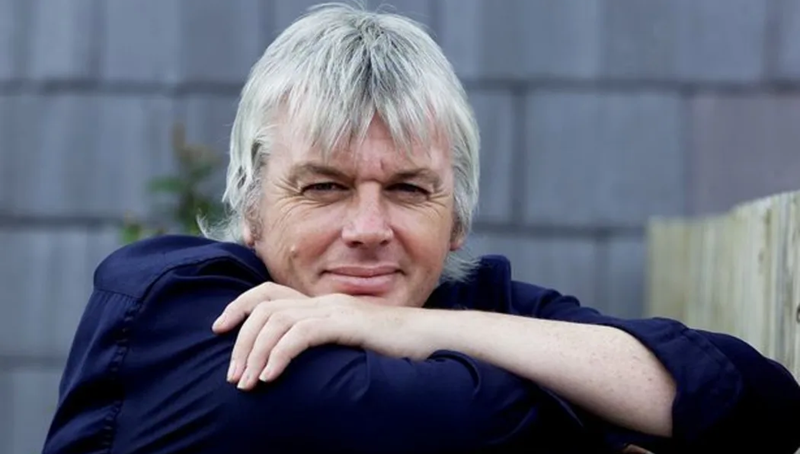David Icke Banned from Entering the Netherlands: A Deep Dive into the Controversy
David Icke, a well-known conspiracy theorist, has been banned from entering the Netherlands due to concerns over his controversial beliefs and rhetoric. This decision has sparked a heated debate among both supporters and critics of Icke, with many questioning the implications of restricting someone’s freedom of speech and movement. Icke, who is known for his outlandish theories about reptilian shape-shifters controlling the world, has long been a polarizing figure in the realm of conspiracy theories.
While some see him as a brave truth-seeker exposing hidden agendas, others view him as a dangerous purveyor of misinformation and hate speech. The Dutch government’s decision to ban Icke from entering the country reflects a growing trend of cracking down on individuals deemed to be spreading harmful ideologies. However, this move has also raised concerns about the limits of free speech and the role of governments in regulating public discourse. As the debate rages on, one thing is clear: the controversy surrounding David Icke is far from over.

The Ban Explained
The ban on certain activities or items is typically put in place by authorities to regulate behavior or protect the public. The rationale behind a ban can vary depending on the specific circumstances, but it is generally intended to address a perceived issue or problem. In some cases, a ban may be put in place to prevent harm or danger to individuals or the environment.
It may also be used to maintain order or uphold certain standards within a community. Banning something can be a controversial decision, as it often involves limiting people’s freedoms or choices. However, proponents of bans argue that they are necessary to maintain the overall well-being of society.
Critics, on the other hand, may argue that bans are too restrictive and infringe upon individual rights. Ultimately, the decision to ban something is a complex one that requires careful consideration of various factors, including the potential benefits and drawbacks of such a measure. Regardless of one’s stance on bans, it is important to understand the reasons behind them and engage in thoughtful discussions about their implications.

Background on David Icke
David Icke is a well-known British author and conspiracy theorist who has gained a large following over the years for his controversial beliefs and ideas. He first rose to prominence as a sports broadcaster in the UK during the 1980s, but it was his dramatic transformation in the early 1990s that catapulted him into the world of conspiracy theories. Icke began to claim that he was a “Son of the Godhead” and that the world was controlled by a secretive group of elite families known as the Illuminati.
He also began to espouse beliefs in a wide range of fringe theories, including the idea that the world is run by shape-shifting reptilian aliens who masquerade as human beings. Despite facing widespread ridicule and skepticism from the mainstream media, Icke has continued to build a devoted following of supporters who believe in his unique worldview.
He has written numerous books on these topics and has given countless lectures and interviews to spread his message. While many dismiss Icke as a crackpot or a charlatan, there are those who see him as a visionary and a truth-teller who is unafraid to speak out against the powers that be. Love him or hate him, there is no denying that David Icke has made a lasting impact on the world of conspiracy theories and alternative beliefs.
Reactions and Responses
Reactions and responses are natural human behaviors that occur in a variety of situations. When faced with a stimulus, individuals often have an immediate reaction, whether it be physical, emotional, or psychological. These reactions can range from fear and anxiety to excitement and joy. How individuals respond to these reactions is what ultimately shapes their behavior and decision-making processes. Some individuals may choose to confront the source of their reaction head-on, while others may avoid it altogether.
In some cases, individuals may even experience a combination of both reactions and responses, leading to a complex array of emotions and actions. It is important to recognize and understand these reactions and responses in order to better navigate and cope with the challenges and obstacles that life presents.
By acknowledging and processing our reactions, we can begin to develop healthier and more effective responses that align with our values and beliefs. Ultimately, our ability to manage and control our reactions and responses can greatly impact our overall well-being and relationships with others. It is through this self-awareness and introspection that we can learn to navigate the complexities of human behavior and make more informed and intentional decisions.
Implications for Free Speech
Free speech is a fundamental right that allows individuals to express their thoughts and opinions without fear of censorship or retaliation. However, the concept of free speech comes with its own set of implications. One implication is the potential for offensive or harmful speech to be spread freely, which can lead to the dissemination of misinformation, hate speech, or other harmful content.
This can create a hostile environment for marginalized groups and contribute to the perpetuation of harmful stereotypes and discrimination. Additionally, the freedom to express oneself can also lead to the spread of false information, which can have serious consequences for public health, safety, and democracy. On the other hand, free speech can also foster open dialogue, the exchange of ideas, and the free flow of information, which are essential for a vibrant and diverse society.
It can also serve as a check on government power and promote accountability and transparency. Ultimately, the implications for free speech are complex and multifaceted, requiring a careful balance between protecting individual rights and ensuring the well-being of society as a whole.

Historical Context of Political Bans
Political bans have a long history that is deeply rooted in the social and political contexts of the time. Throughout history, rulers and governments have used bans as a tool to control and suppress dissenting voices and ideologies. In ancient times, rulers would ban certain individuals or groups from participating in political activities or holding positions of power in order to maintain their own authority and prevent opposition. These bans were often used to maintain the status quo and prevent any challenges to the ruling elite.
In more recent history, political bans have been used in times of political upheaval and unrest to silence opposition and maintain control over the population. For example, during the Cold War, many countries banned communist parties and ideologies in an attempt to prevent the spread of communism and protect their own power.
In modern times, political bans are often used as a means of targeting specific groups or individuals that are seen as a threat to the ruling regime. These bans can be used to marginalize and oppress certain groups, preventing them from participating in the political process and voicing their opinions. Overall, the historical context of political bans reveals a pattern of using bans as a tool of control and suppression in order to maintain power and authority.
